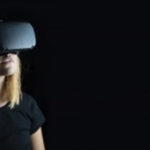Creating a gaming platform for the professional world, Pixaera has just raised about €5.7 million. The London-based startup is taking e-learning into a new era, giving employees immersive learning opportunities to practice new skills.
E-learning and the rise of edtech have been quite exciting phenomena to watch over recent years. But, it seems that we are now entering a new era with the emergence of the metaverse and 3D learning.
Moving to immersive learning doesn’t just create experiences that are more fun for participants, but they also seem to be more effective. For example, research from PWC found learners in immersive environments (such as VR) are 275% more confident in applying their skills. While a separate study by The University of Warwick found that not only does VR learning help people perform better in tests, but it has a positive impact on mood.
Aiming to take this understanding into the professional world to inform upskilling and workplace training is Pixaera – founded in 2020 by gamer and industry veteran Mousa Yassin.
Mousa Yassin, founder and CEO said: “We’re going through a transition. Video content is losing market share to interactive 3D worlds. A younger generation has grown up online, as familiar with gaming as with a classroom setting and they know which they prefer. By replicating the fun and absorbing nature of gaming, we can transform how professionals learn and connect with one another across all sectors and industries, with huge implications for productivity and business success.”
Building a new era of learning
The London-based startup has now picked up fresh funding to build up its immersive learning platform and bring it to the workplace, raising about €5.7 million.
This funding consists of two rounds – about €1.2 million of pre-seeding and about €4.5 million led by early-stage EMEA investor, LocalGlobe. The founders of FACEIT, the leading competitive gaming platform for online multiplayer games, also participated, as did ERM, a leader in the renewable energy services sector, and York IE.
Already companies like Shell, GE and BP have begun using the platform, empowering employees to enhance their skills in a more engaging way. Pixaera reports that 98% of participants say they prefer the Pixaera platform as compared to other training options.
Learning through play
Built to bring the power, fun and emotion of online games like Roblox and Minecraft to the professional world, Pixaera aims to help businesses upskill their workforce more effectively and efficiently. By leveraging the growing evidence that shows immersive training and VR are more effective than traditional methods, Pixaera’s immersive experiences bring a new paradigm to professional development in the workplace.
Founder Mousa Yassin developed the platform based on his personal experience as a gamer. Whilst playing popular classics like Final Fantasy and World of Warcraft, he was able to identify that games can teach players vigil skills – problem-solving, creative thinking, teamwork and goal setting – whilst still being engaging and fun.
Mousa’s vision was to bring the quality of immersive 3D experiences from the gaming world directly into the professional sphere, reshaping training and upskilling for good.
Mousa Yassin: “I started to wonder why the gaming industry, being so sophisticated and technologically mature, had not considered building for the corporate and professional world. There was such a gap between how players learn and collaborate organically and fluently in successful games, with the more old-school, unengaging learning experiences we have all been through as employees – even in roles where the stakes are high. Gamers willingly spend hundreds of hours developing their skills while in contrast, companies pay vast sums for online content that has to be forced onto their workforce and fails to truly deliver value.”
Based in London, the platform provides a single place to integrate, build, deploy, report and manage a growing list of next-level training simulations from safety to leadership, mental health and more. Once immersed in Pixaera games, via VR or PC, employees learn and hone their skills, and put theoretical training into practice in highly realistic environments. They can rehearse and repeat procedures to perfection.
By mirroring situations they find in their day-to-day job in a highly realistic way, trainees playing Pixaera’s games are also able to trigger real-world emotions. For example, the stressful feeling of being peer-pressured to cut corners or the anxiety caused by seeing someone in danger because of your actions. It’s the sense of presence and the emotional connection that makes the games so impactful, while the immersive nature lends itself to the way humans interpret and retain information.
“There is no reason why VR/MR and gaming cannot be the leading tools for professional learning and collaboration across any industry, worldwide; as the technology develops, the applications are endless.”
Pixaera’s learning platform can be integrated into each client’s learning management system, making it simple for learners to join training sessions and schedule development time. Clients can also cascade training through to a global workforce through a single-app experience.
This new funding will help fuel the vision of revolutionizing professional training, with the aim of creating an ecosystem of high-quality game-based learning tools and experiences. It’ll also help expand the growing team of gaming and software developers as well as advance the product.
Ziv Reichert, partner at LocalGlobe said: “Our belief is that learning through ‘play’ is vastly more effective than learning through traditional educational formats. Playing is doing, playing is experiencing. The immersiveness of the medium creates real-lasting memories, which, in an educational context, translates directly to knowledge retention, retention that far outweighs that of video or text based learning. It is also fair to say that learning through gaming is significantly more enjoyable and that is not to be underestimated. There is now a whole generation of gamers entering the workforce who have grown up immersed in ‘play’ and will certainly opt to learn that way.”
Quelle:



